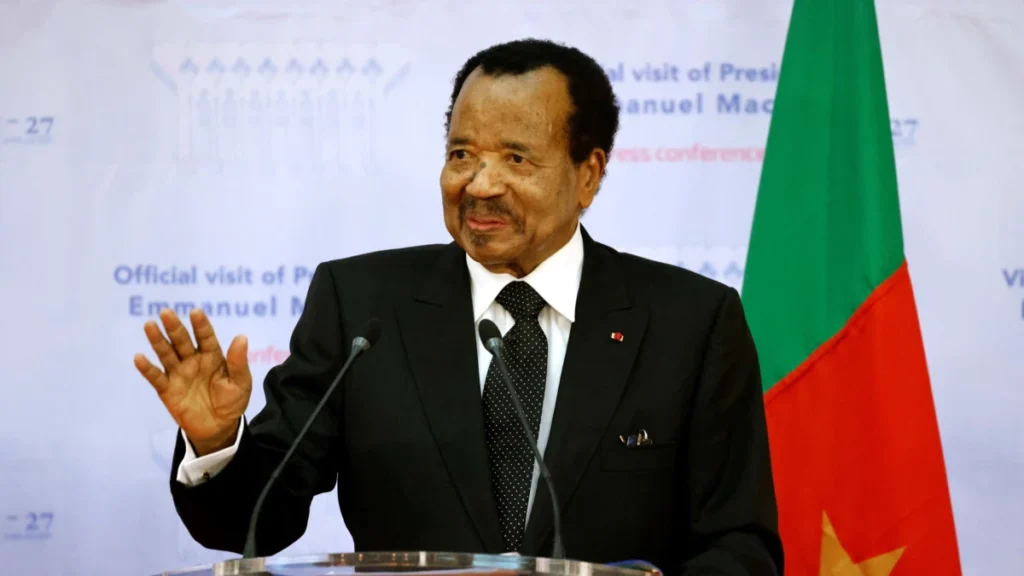President Paul Biya of Cameroon, the world’s oldest sitting head of state at 92, has officially declared his intention to run for an eighth term in the upcoming presidential election scheduled for October 12, 2025. The announcement was made via a post on his verified X (formerly Twitter) account on Sunday.
“I am a candidate in the presidential election. Rest assured that my determination to serve you matches the urgency of the challenges we face,” the post read.
Biya has held power since 1982, following the resignation of his predecessor, Ahmadou Ahidjo. If re-elected, Biya could remain in office until he is nearly 100 years old. While rumors about his health persist—fueled most recently by a 42-day absence from public view last year—the government continues to maintain that he is fit and has labeled any public discussion about his health a national security issue.
His candidacy had long been anticipated, with members of the ruling Cameroon People’s Democratic Movement (CPDM) and loyalists calling for him to seek another term. However, opposition parties and civil society groups argue that Biya’s extended rule has stifled both economic growth and democratic progress in the country.
Concerns Over Health and Democratic Process
Biya’s prolonged absences and limited public appearances have raised widespread concerns about his capacity to govern. The president frequently delegates authority to his chief of staff, further intensifying debates about his fitness for leadership. Last October, he returned to Cameroon following a six-week disappearance that reignited speculation about his health.
In 2008, Biya eliminated term limits, giving himself the legal backing to run for office indefinitely. He won the 2018 presidential election with 71.28% of the vote, a result the opposition claimed was marred by widespread irregularities.
Opposition Gears Up for 2025 Contest
Several opposition leaders have already declared their intentions to challenge Biya at the polls, including Maurice Kamto of the Cameroon Renaissance Movement, who was the runner-up in 2018, Joshua Osih of the Social Democratic Front, Akere Muna, and Cabral Libii of the Cameroon Party for National Reconciliation. These figures have criticized Biya’s decades-long rule and are demanding electoral reforms to ensure a free and fair election.
A Nation at Crossroads
Cameroon, a resource-rich Central African nation producing both cocoa and oil, has experienced significant instability under Biya’s leadership. Ongoing conflicts include a separatist crisis in the English-speaking regions and attacks from Boko Haram militants in the north. With Biya’s advancing age and fragile health, there are growing fears of a potential succession crisis, especially if he becomes too ill to govern or dies in office.
The 2025 election is shaping up to be a pivotal moment for Cameroon, potentially determining the nation’s democratic future and stability.

